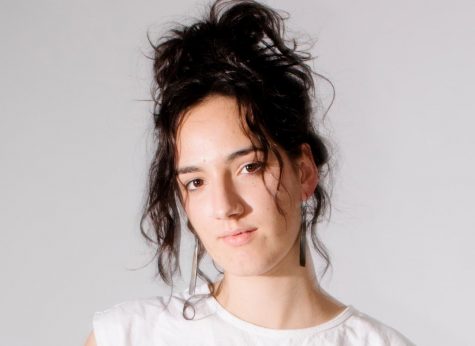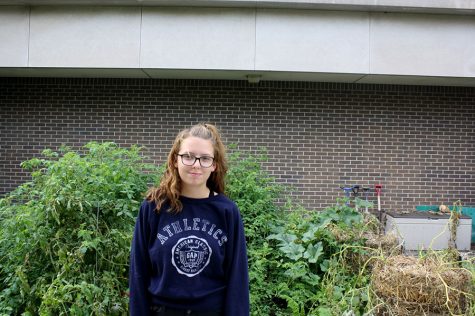All Nations students build community with lacrosse sticks
All Nations students have the opportunity to learn the process of building traditional lacrosse sticks. Every spring All Nations students learn traditional lacrosse as part of the curriculum. The introduction of the game is an important connection to their traditional culture and building sticks takes that a step further. South sophomore, Ava Keezer-Dow said, “Before lacrosse was just always a game [but] since I started making [lacrosse sticks] it’s just like I felt more connected to something bigger.”
March 20, 2019
Students have the opportunity to learn how to hand-build traditional lacrosse sticks during and after school. Traditional Lacrosse is an important part of South’s All Nations program. Teachers introduce the game to the freshmen in the spring yearly and continue to develop skills in the game over the year.
According to Vince Patton, a South social studies teacher; All Nations students are required to learn the process of building lacrosse sticks during their time at South at least once. “We also have an after school [option] if the students actually want to continue doing this,” said Patton.
The students who come into work after school are part of a more focused project to learn the woodworking techniques and make sticks to sell to people and organizations in the community. Patton said, “we’ve made orders for Center School, Anishinabe Academy [and] we’ve made orders for other schools around the metro.”
The project has made an impact on students and is allowing a chance to connect with their native culture and gain woodworking experience. South Sophomore Ava Keezer-Dow said, “before lacrosse was just always a game [but] since I started making [lacrosse sticks] it’s just like I felt more connected to something bigger.”
Initially, the program was going to be funded through a $70,000 grant from the Minnesota State Arts Board but due to a mistake in the grant application process, it didn’t go through. Kerry York, MPS grant manager said it was because, “there were some pieces of the grant application and what was going to be done with the funds, which we can’t do with grant dollars according to our own district policies.”
Currently, the All Nations program does have funds from a yearly grant that, once finalized, will cover the costs of projects like building lacrosse sticks. This allows for students involved to earn a stipend for their work but the amount will most likely be significantly smaller than originally planned. As All Nations Coordinator David (Bezh) Butler put it, “We can pay some [students] but it won’t be $70,000 of paying them.”
One goal of the project is to connect students to their culture by learning traditional building techniques. “It’s all about revitalizing our cultural ways. One of those ways is making these lacrosse sticks,” said Patton. The techniques learned through making the lacrosse sticks will build skills needed for later traditional woodworking projects the All Nations teachers hope to facilitate.
The project is part of a larger goal of not only teaching traditional skills but also getting students involved and supporting them in all areas. Butler said, “I want to make sure were providing holistic care so even if it’s providing job opportunities… or healthcare or mental health [support], we try to do everything we can for these kids.” The plan to provide stipends for students work is one part of this support.

![All Nations students have the opportunity to learn the process of building traditional lacrosse sticks. Every spring All Nations students learn traditional lacrosse as part of the curriculum. The introduction of the game is an important connection to their traditional culture and building sticks takes that a step further. South sophomore, Ava Keezer-Dow said, “Before lacrosse was just always a game [but] since I started making [lacrosse sticks] it’s just like I felt more connected to something bigger.”](https://www.shsoutherner.net/wp-content/uploads/2019/03/lacrosse-900x506.jpg)





